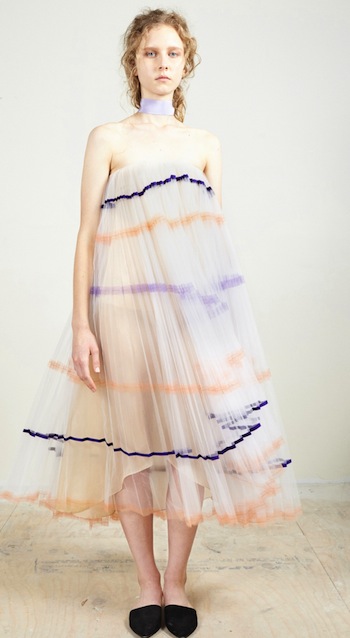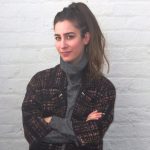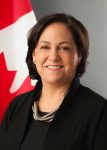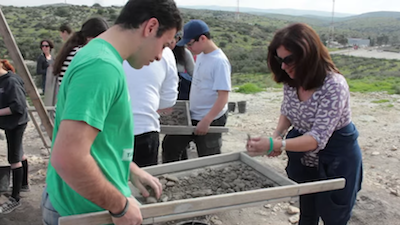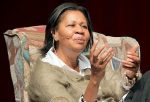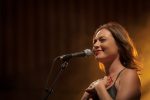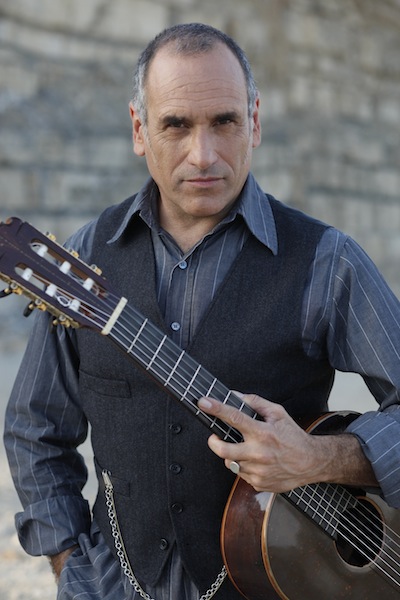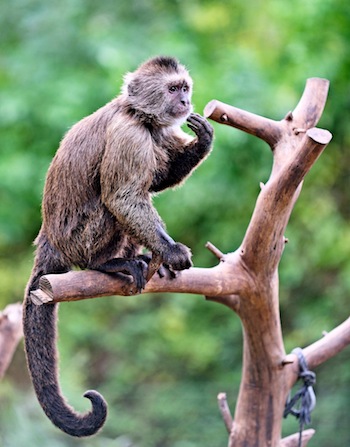While I was completing my doctoral work examining the creative expression abilities of seniors with dementia and the therapeutic environment they lived in, I continued working in the Creative Expression Activities Program I had developed. Early in 2000, a group of six Jewish couples who had immigrated to Canada in their later years, asked me to conduct a series of creative expression activities with them. The participants had come from Mexico, South Africa and England to join their adult children and families in Canada. The group named themselves the Lost Tribe, after the Lost Tribes of Israel – the two tribes out of the 12 original biblical tribes that disappeared. The couples lived on the North Shore, away from the main Jewish centres in Vancouver, and strived to build a strong new community based on traditional Jewish Orthodox customs.
The group formed friendships based on common faith, customs, and the challenges of getting older and adjusting to a new country. They faced the potential loss of independence they had worked so hard to attain and the ever-increasing fear of becoming a burden on their adult children. To be successful, they knew they would need to merge the old world with the new. The group met regularly to share their spirituality and serve their social and religious needs. The couples took turns hosting our sessions at their homes and enthusiastically agreed to be filmed and recorded.
The participants were advised that this program was initially developed for seniors living with early to moderate dementia and that it would be adjusted to meet their abilities. The group was curious about the differences I observed of seniors with dementia, and I was happy to share my observations.
The Lost Tribe was a breakaway group from the main synagogue on the North Shore, based on more traditional Jewish observance during services, which members conducted themselves at a private home, occasionally joined by a professional cantor. During the High Holidays, the congregation swelled to 60 worshippers. However, on Friday and Shabbat services, it would shrink back to a handful of people, hardly enough for a minyan, where 10 males need to be present at prayer.
Members of the Lost Tribe were Lilia, late 50s, and Hilario, 65, from Mexico; Jeffrey, 82, and Greta, 72, from England; Aryeh and Rachel, both in their 60s, from Johannesburg, South Africa; Abe and Jean, both in their 70s, from Cape Town, South Africa; Mair from Morocco and Helene, from northern Alberta, Canadian by birth; and Ralph, 70, born in Turkey, who lived half his life in England, half in Canada, and Gillian, 67, who is English but lived half her life in Canada.
Creative expression
The approach to creative expression is based on nursing, psychology, social work, adult education, the arts and architecture. It aims to enhance a sense of fulfilment, personal growth and accomplishment and contributes to the appreciation of the arts in the healing process and in enhancing an individual’s quality of life. The award-winning program includes the visual and performing arts: discussion, poetry, music and dance.
The topics for discussions and the process were discussed in advance. The sessions themselves were loosely guided by me and by the group’s dynamics. Each session lasted for two hours and ended with lunch. Participants took turns providing food and snacks. No cost was involved and my services were free.
I found it remarkable that they were Jews from various corners of the world and, yet, I understood what they were talking about, I could sympathize with them, cry at their sad stories and laugh at their jokes.
As the program progressed and trust grew stronger, I realized I was recording very personal stories that were rich in details, in Jewish philosophy, thoughts on the Jewish religion, on aging and what life is all about. I was taken by surprise by the level of connectedness I felt with these perfect strangers. I noted all the familiar mannerisms, food, songs, beliefs, humour, hand gestures, life stories of great lessons and how we shared the same ethnic identity. I found it remarkable that they were Jews from various corners of the world and, yet, I understood what they were talking about, I could sympathize with them, cry at their sad stories and laugh at their jokes.
The four topics were: philosophical approaches to life based on strength versus weakness; relationships with family members (are we a burden, or is this inevitable as we grow older?); the meaning of being an elderly Jew in Vancouver and in their country of origin, and the impacts of the Holocaust in Europe; and spiritual connection to Israel. Key thoughts were highlighted and categorized into themes to demonstrate that Jewish identity matters, and these values are imbedded in the more general issues of aging, cognitive abilities and family relationships. Here are some of the participants’ thoughts.
Strength and weakness
Ralph: Strength means two things: physical strength and mental strength that goes down as you get older. Physical strength you need to survive. Mental strength is adaptability, which is the greatest thing to me. The other thing is peace. It appears to me that inner peace comes with age….
Aryeh: Unfortunately, we live in a world that there is no place for weakness … and, as we get older, we need to get stronger.
Jeffery: Not everything is strength. I will give you an example. Israel is very strong and she cannot do anything with it. Absolutely nothing….
Rachel: I believe in strength. I [have] always been strong; I [have] always been a strong believer of my faith…. People in Canada are more placid. I became quite placid. You are nowhere unless you fight. That is what I do.
Lilia: Sometimes we need to be weak in order to be strong. Like a huge tree, we need to be flexible.
Gillian: I learned to be strong at a very early age. I was shipped off to a boarding school when I was 9. I was one of four Jewish girls in the whole school and we had to stick together. We were tortured, literally. It helps to get together with others who feel the same way. It was a good lesson. I was a fighter.
Abe: I think we were all born with strength and weaknesses. There are two things that determine strength and the weakness. One is life experiences; the other, the genes that we inherit…. When being passive, it could be a show of inner strength not to react or respond to everything…. It is a delicate balance.
Family relationships
Rachel: Most older people don’t want to be a burden on their children…. The last thing they want to do is to have to live with their children.… But what happens when you are really ill?
Greta: In a twinkle of an eye, my children would look after us, but I feel my children spent many years looking after their children. When they have the freedom to live their lives, I don’t want to be a burden to them…. I like my independence.
Jean: Living with your children does not mean living in their living room.… It can be a suite or a basement and have the best of both worlds.
Abe: We need to look at the following three aspects. The state of our health at any given time, how much assistance we require from different sources, and our state of our finances…. It depends on our relationship with our children and the interplay between the parent and the child.
Aryeh: We all remember most of the 10 commandments but I believe that our children forget more than we did one really important commandment, “honour your parents that your days may be longer on earth that God has given you.” I don’t expect anything from my children. We are living in different times…. One of the concepts in Judaism is that we should be happy with our lot, whatever it is. My mother looked after her parents. It was not a question of a burden; it was accepted in those days.
Gillian: About children – they were not asked to be born. They came, you loved them with all your heart because this is what you do for children, and then you released them to have their own life…. I don’t think they owe you a thing. But, if they want to give you something, you should take it as a bonus.
Ralph: I agree with Gillian. When your children are born, you nurture them. It is an animal thing to do…. The children don’t owe the parents and the parents don’t owe to the children. Those children that want to maintain a relationship … being financial or sheer love, they do it because they want to. I feel that my grandchildren need me as much as I need them.
Being an elderly Jew
Abe: We were fortunate. Our daughter wanted us to come here since she wanted to look after us. We live in their building and we are very happy. Being close to a Jewish community is very important to us…. I was very active in the Jewish community in South Africa, all the time…. It was Orthodox almost 100%. Coming here, I had to adjust to a different set of circumstances.
Gillian: We were delighted to find this group here. We lived in many places in Canada with hardly any Jews around. It is very comforting to have other Jews around. They know your background, they understand your sense of humour. We may have arguments with them, but this is friendship and not cultural differences.
As a young boy, I grew up in the East End of London … in a violently anti-Jewish neighbourhood. So, my religious side is sadly lacking but my right arm was very strong.
Ralph: I am a reformed Jew, not a Reform Jew. Big difference…. I am not a particularly religious Jew, I do not follow all the commandments, as many as I should, but I am a Jew by birth, by faith, and a Jew by outlook. I feel much more comfortable amongst a group of Jews than in a group of non-Jews. As a young boy, I grew up in the East End of London … in a violently anti-Jewish neighbourhood. So, my religious side is sadly lacking but my right arm was very strong.
Rachel: When I was younger, I was like all mothers, I dropped off my children at the synagogue and did not go in myself and, as I became older, I became more Jewish…. Unfortunately, when we came here, there is not much Jewishness here, living on the North Shore…. Coming here, I realized what I had there and I missed it.
Greta: When I grew up, we moved to another Jewish area, probably the biggest Jewish community in London. Everywhere you went it was Jewishness, if you wanted it or not. I did want it…. It is not enough Jewish here like it was back home in London. We imparted our Jewishness with my children and they with their children. Amen.
Connection to Israel
Jean: Israel makes me proud because Israel is a country that belongs to all Jews. We can all go there any time and it is our country and it makes [us] grateful and proud. Also, it is a great source of comfort to know that it is there and, because it is there, we have got a much better standing in the world: we are not again [a] homeless, wandering people. And this tiny, tiny, little country has accomplished the greatest things, great discoveries, experiments and scientific things, winning wars. Phenomenal what this country has done, and that is why I appreciate having it as my country.
Aryeh: Having Israel is certainly one of the miracles. Going through the Holocaust, [approximately 40%] of the Jews worldwide were being destroyed, and then getting a country is unbelievable, and having to fight for this country. Israel hands us dignity.… One of the things for the messianic era is that we all will be gathered back to Israel…. The fact that America is a great ally of Israel is another modern-day miracle. Imagine if they were not.
Jean: I don’t have any dramatic stories. For me, Israel means a spiritual reality that will always exist…. Israel is the very framework for our civilization.
Greta: When Israel became a state, we were thrilled we finally at last have a country. Jews could hold their heads up when, prior to that, only a certain number of Jews could go to universities, antisemitism was everywhere. It changed a lot of things. Jews started to blossom where they were not allowed to [before]…. What I don’t understand – why the world feels sorry for what the Palestinians are going through, totally ignoring what the Jews are going through. If, God forbid, Israel did not exist, it would be the biggest tragedy that happened to the Jews.
Gillian: Israel, for me, is a beacon of light in a very darkening world. Like Greta, I was born in England, a granddaughter to Russians Jews. I was raised to put the pennies in the blue box for Israel to buy land. As I got older, I was sent to a boarding school, where I encountered for the first time really bad antisemitism…. If things got bad in Canada, we know we would have a home there. We need to protect them and we know they will protect us…. There must be always an Israel and it is up to us to make sure it always exists.
Ralph: I come from a community that up to 1939 really did not experience antisemitism for hundreds of years. A state of Israel was more in the religious context than the emotional context…. Israel since then became part of my life and being in many, many ways. I regret we did not go to Israel, partially from fear of not knowing the language, ignorance. By then, I had a wife and two small children and we needed to eat and pay the rent…. I walk with my head up, held high, because there are kids with guns in Israel. In my early years, one of the antisemitic thorns was why don’t you go back to where you came from, bloody kike? There was no place. Where could I go? From one part of London to the other. Today, there is [Israel].
I am pleased to be over 70 years old for one important reason, so I was old enough to understand what was going on when Israel was established as a state in 1948.
Abe: To me, Israel is about the most unique country in the world…. It is the modern-day realization of biblical prophesy…. I am pleased to be over 70 years old for one important reason, so I was old enough to understand what was going on when Israel was established as a state in 1948. Many, many Jews today did not go through this experience…. This was the first wave of emotion that swept me away, I just could not believe it was happening. The second time the importance of Israel to me came to the front was one week before the 1967 war. We were all sitting and praying and fearing for the annihilation of the state of Israel. How can Israel exist as she was ready to be attacked by the armies of three Arab countries: Syria, Egypt and Jordan?… Then came the Six Day War. We won wonderfully, Jerusalem was reunited. I just broke down in absolute tears…. And the third time was in 1976, when Israel conducted a raid on Entebbe, when Israel went out of its way to save Jews…. It brought home to me how terribly important the existence of Israel and its continuity is in all of us.
The tribe disbands
Eventually, two couples and their families succumbed to the attraction of joining a stronger Orthodox Jewish community and moved to Vancouver. Their move was hastened by an earlier breakdown in the group, resulting from disagreements about approach – should it be more liberal and embrace the Conservative way, or stay with the Orthodox approach. Other issues crept in – health problems, for example – and the group fell apart.
The experience with the Lost Tribe was emotionally therapeutic for all of us. This group did not differ from seniors of other cultures: staying engaged with others, coping with changes, maintaining physical, mental and financial health and learning were crucial for successful aging. Opportunities to practise religion, faith and spirituality were specifically important in coping with difficult situations. Although the seniors felt the sessions were rewarding and looked forward to each activity, tensions stemming from philosophical differences in Jewish worship and group dynamics contributed to the group’s demise after one year.
Dalia Gottlieb-Tanaka, PhD, chair of the Society for the Arts in Dementia Care, earned her PhD (2006) and post-doctorate (2011) from the University of British Columbia, and is a graduate of the Bezalel Academy of Arts and Design, Jerusalem. She developed the Creative Expression Activities Program for seniors with dementia, which won an award from the American Society on Aging and the MetLife Foundation, and continues to give presentations in the United States, Canada, Israel and Europe.
